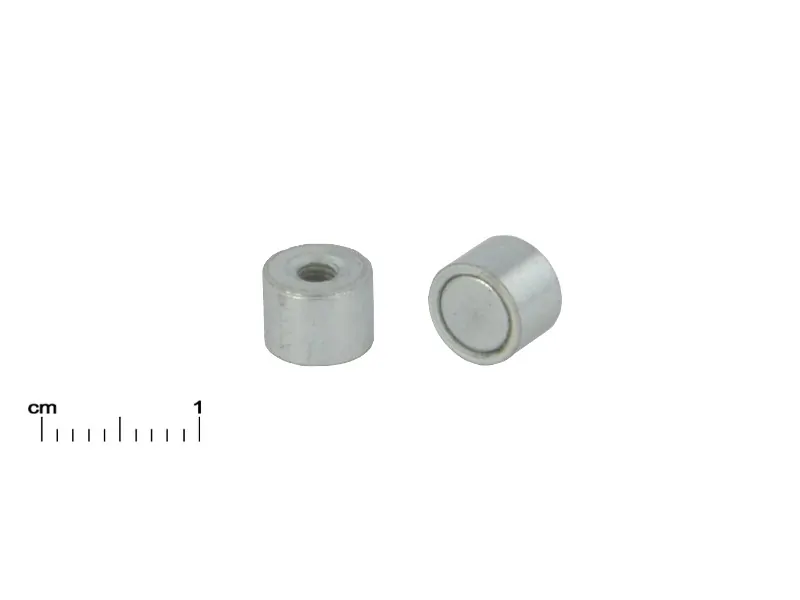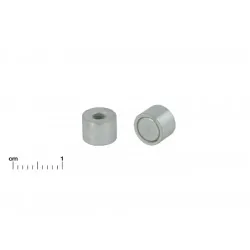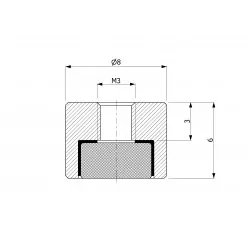- Special Offer!





The pull force given refers to hoisting capacity measured in optimal conditions, by using as a backing plate a sheet made of low-carbon steel, 10 [mm] thick, of smooth surface and with the force acting perpendicularly, in room temperature.
Notice: the pull force given should be treated as only a comparative value. An actual pull force depends on the following factors:
Holding magnets are simple magnetic circuits composited of a magnet and a steel housing. Because of that, in the holding magnets both magnet poles are used (one works directly, and the second saturates the housing, which also act on the attracted element), they are characterized by a relatively high pull force parallel to significantly reducing of the operating range.
In the holding magnet sintered neodymium magnet was used. Max. working temperature for holding magnets involving neodymium magnets is 80°[C].
You will find attached a dimensional drawing of the holding magnet.
A small, round neodymium magnet is glued into an iron casing in the shape of a cup, or pot. Due to its brittleness, it is not possible to thread the hole in the magnet, so the thread is made in the iron bottom of the casing. The magnet does not protrude over the rim, edge, edge of the iron cup, and is not flush. Thus, it is more protected against impacts. This pot magnet or encapsulated magnet has a diameter equal to its height and this is 6 mm. The load capacity is approximately 2 kg. Something can be screwed into this magnet, e.g. a hook, an eye, a threaded rod is what makes this product unique.